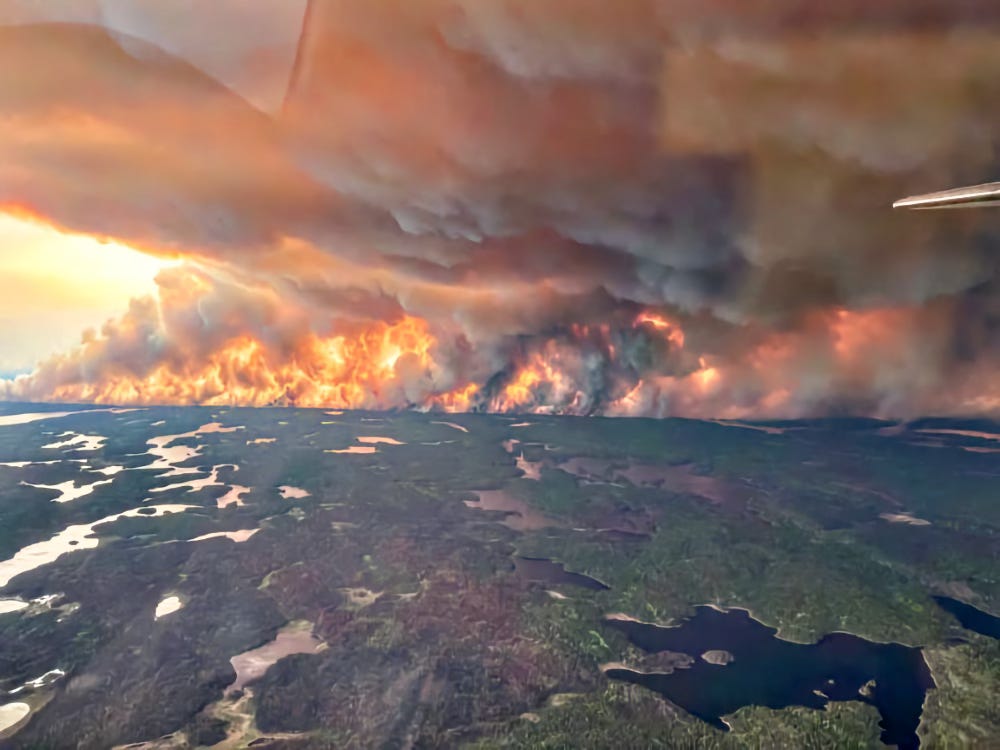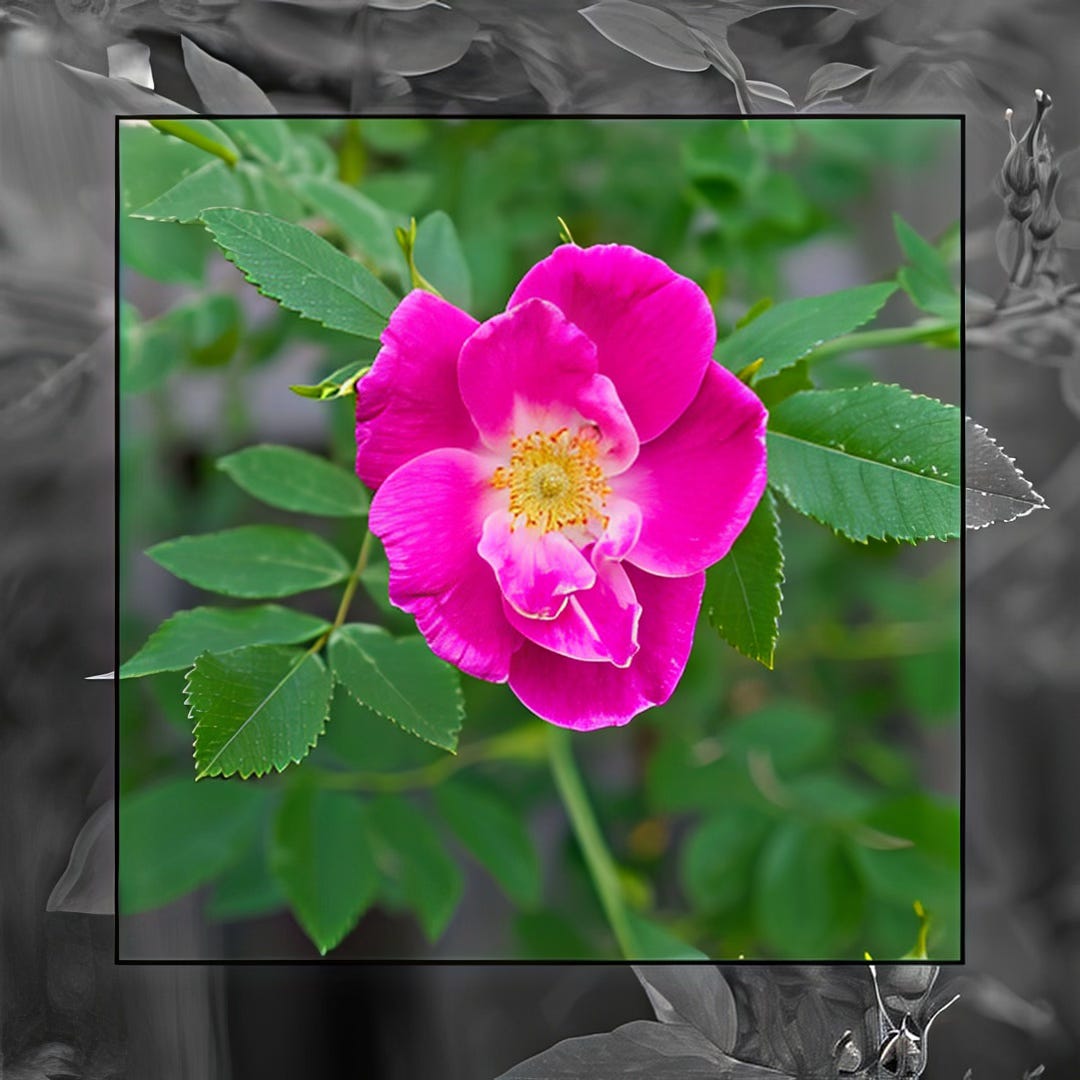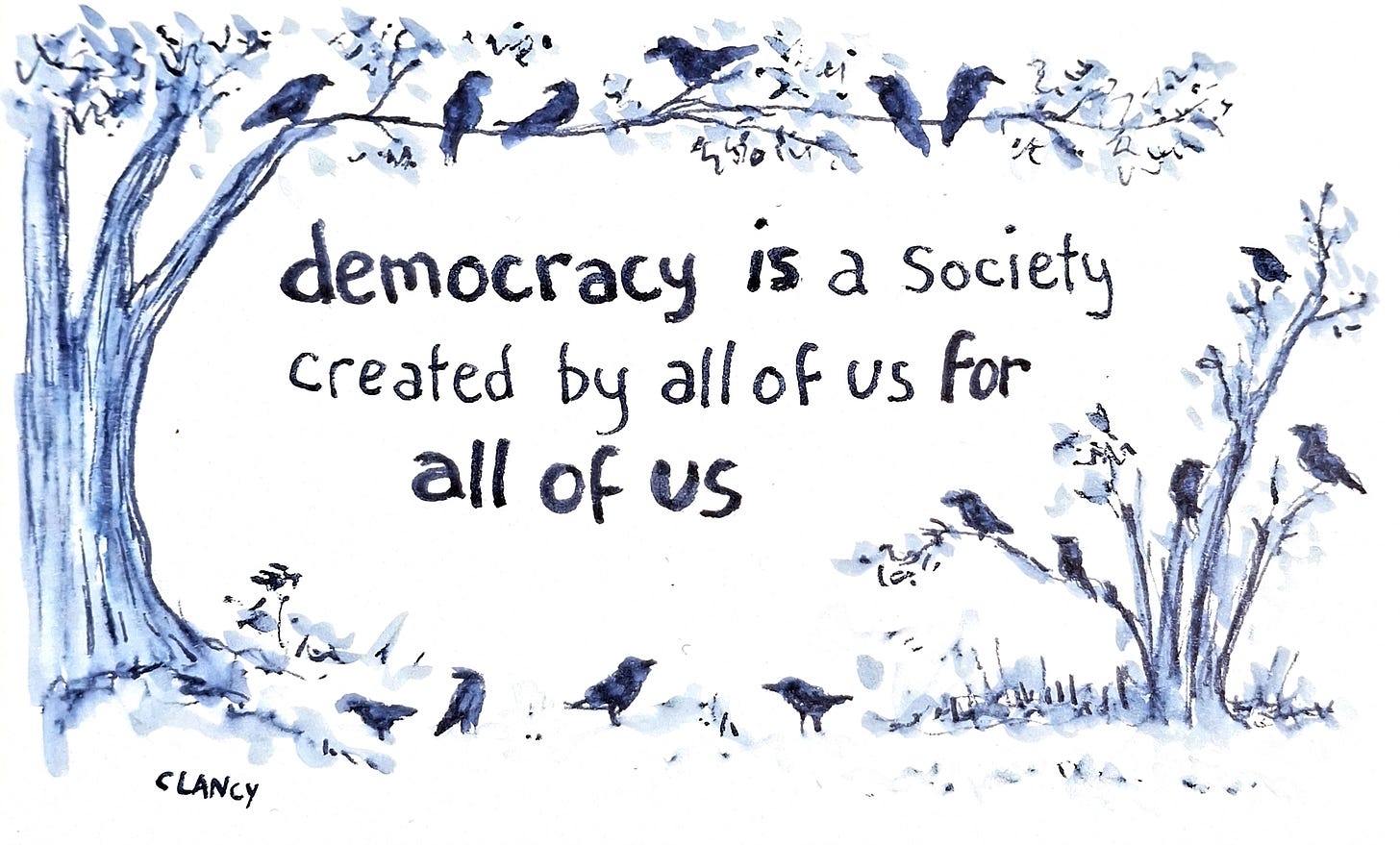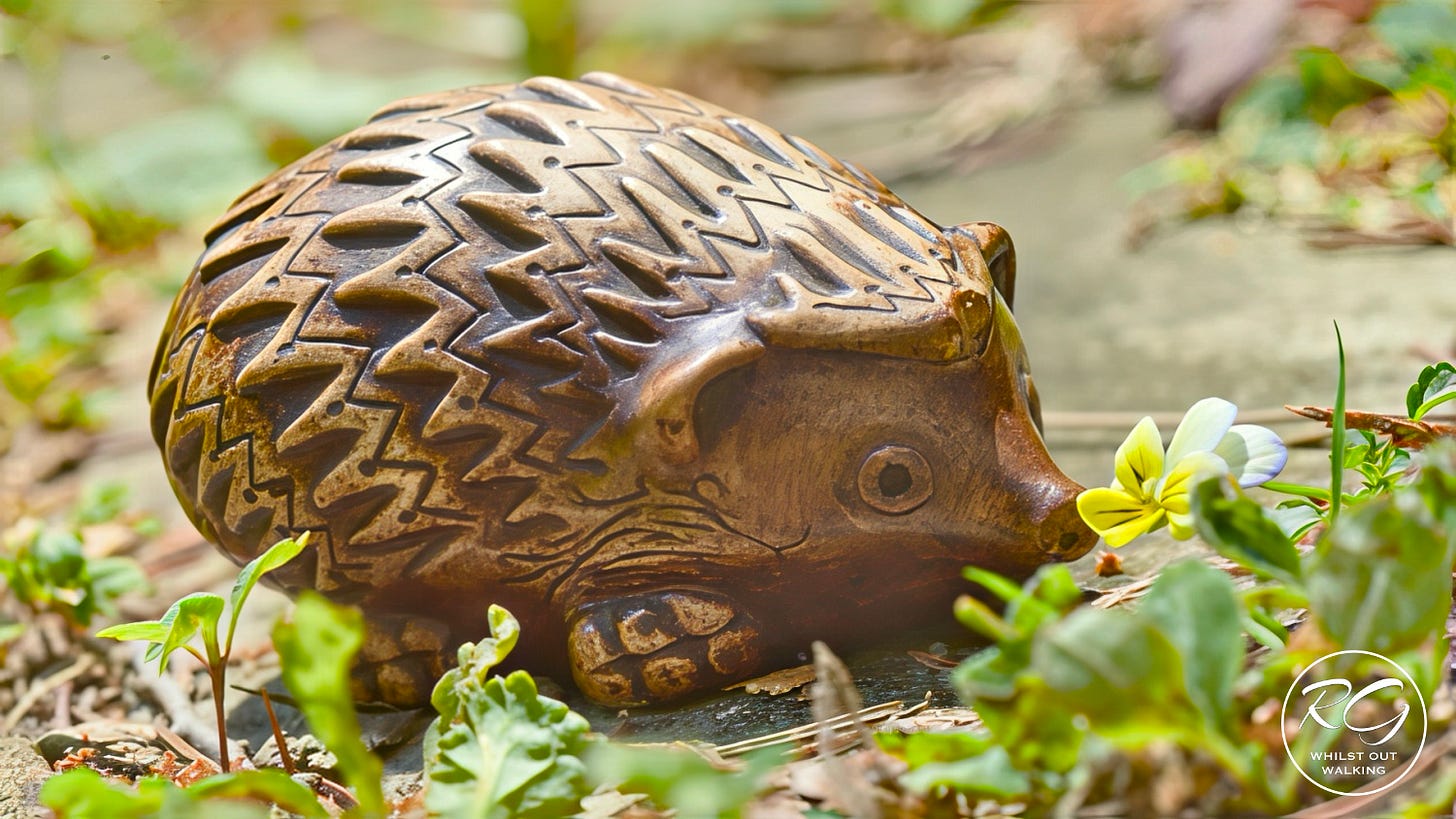The First Peony
I am starting this second Offshoots newsletter with thanks to the unexpected, albeit hoped for, positive response to the trial run last week. In expressing my thanks I offer this beautiful rose to you all … I cannot share the scent it brought with it, but it’s nice.
Privatising the Environment is a Sin
This canal, and the close-by River Aire were pretty well dead when I was a kid (>60 years ago) in Leeds. These were waterways passing through an industrial city, so not totally unexpected back in those unenlightened times, but on the other hand, nearby rivers a bit to the north and out in the countryside used to be reliably clear and clean - The River Wharf being my most visitable example at the time. Today, I am reading from afar, about the sad state of England’s rivers with considerable dismay. What with multiple cases of deliberate sewage discharge into rivers by water supply companies it seems things are - this case being a shining example that there a few bright spots - getting worse if anything.
The Rivers Trust has said “ … vital rivers are plagued by sewage, chemical, nutrient and plastic pollution. We’ve heavily modified them and removed natural features so that they no-longer function as they should. This makes the effects of pollution much worse and leaves rivers less able to respond to the pressures of climate change.” They also noted that “No single stretch of river in England or Northern Ireland is in good overall health. Just 15% of English, 31% of Northern Irish and 50% of Irish river stretches reach good ecological health standards.” That’s is quite appalling and apparently a, not unexpected, consequence of earlier governments in the UK privatising the water supply industry and thereby allowing profits got in the way of good, let alone best, practice. England’s green and pleasant land, eh?
Not that matters are necessarily better in some other wealthy countries - though problems here (Canada) tend to be local and not so widespread. I live ten minutes walk from the St-Lawrence River, one of the “great” rivers of the world. It has certainly had a history of pollution but today, while you wouldn’t drink the water, it is predominantly clean and samples are regularly monitored for such things as coliform contamination and you can certainly swim in it. Water quality details are freely available on the internet too, so nothing is hidden.
This isn’t a political rant, partly because no one party anywhere has a lock on best practice. Neither is it suggesting that Canada is superior to Britain (though, having long experience of both, it is in some ways … maple syrup and poutine being examples). What it does indicate to me, however, are the differences in outcome and care for the environment between a country/province in which water supply and sewage management is firmly under the control of the municipal/provincial/federal levels of government (Quebec/Canada) and one where such essentials have, mistakenly, been sold off to private businesses. At least in the UK today there is now talk of re-privatization (at huge expense) but even if that happens, putting right what has happened will be enormously expensive and lengthy. A lesson to all countries.
I just think it is best for communities and elected officials to take care of the environment they live in and not expect the markets to do a better job … because they never will.
Taken (as the artist freely offered it for anyone to use) from:
Magic
If ever someone says that the world holds no magic, they must be made to witness a winged being unfurl from its ground-bound body—a dragonfly erupting from its larval skin, or a butterfly uncurling from its cocoon. Who could deny the sensation of freedom and wonder and electricity that such a sight elicits? Who would deny that it is magic?
Quoted from:
Wildlife Gardening - Political or Artistic?
Someone under the name “Milk the Weed” on Facebook recently posted the following:
(Lightly edited for length): Recently, someone said I should stop being so “political” about gardens because gardens aren’t “political.” I think the term was used as a way to shield themselves from some uncomfortable ideas about our role on a planet we’re eroding quickly, and how responsibility for it might begin in a very personal space — our home gardens.
Gardens aren’t political statements? Sure they are. … if, make no mistake, by “political” we mean thinking critically about our culture in whatever way we can: moral, ethical, socioeconomic, disrupting the status quo of systems of power, et cetera.
Gardens full of native plants are acts of social justice, empathy, and then compassion for other species we’ve put on the brink, as well as fostering the physical and psychological health of our own species. Gardens are a resistance to a culture of narcissism and hubris. Gardens are more than art, more than beauty for us. Urban gardens, especially, are a rewilding (not a restoring) of the broken bonds between us all, an open conversation held again where we begin to remember the languages we’ve lost, ignored, or betrayed. When we speak leafcutter bee or bobwhite quail, we remember the chorus and our own language is enriched. Without the voices of the animate world in our daily lives, our existence is a pale, sick shadow
To which I would add that in my experience, perhaps a majority of people like and appreciate the natural world, even if they are not gardeners. It has to be remembered, though that if we have a garden, then we have some sort of responsibility for what grows and lives in it and all of us with or without gardens to our names, have a responsibility to the world around us, which means the natural world. Many of our cities have grown so large that meaningful green spaces and natural corridors through which wildlife can move reside within networks of conjoined gardens. To leave our personal outdoor space to boring grass and not much else is to simply renege on our responsibilities. Yes, there’s nothing wrong with having lawns, but not exclusively lawns.
A very, very tiny viola, less than an inch across, struggles to show above cracks in the patio stones … a “small for scale” member of the outdoor staff savors its scent and tries to scare off big feet.
Ways to help insects survive
I’ll just give some of the headlines. This is from the article to which the following link will take you:
Turn out lights at night
Garden with native plants
Make compost
Provide water
Let leaves lie and Let thing rot
“Sprinkle some rocks” (this one is interesting for ground nest bees)
Weed carefully by hand
... and quite a few more with explanations. All very simple.
Links to a few articles that I found interesting … reading them is optional, of course:
“Ghost Gardens”
I enjoy coming across these too. Nice term for them.
From the McGill University Office for Science and Society
https://www.mcgill.ca/oss/article/critical-thinking/best-times-worst-times
Most of us are living the good life. There is no doubt that we are living longer and in greater comfort than ever before, but at a price … solutions will not come easily. They are dependent upon scientific expertise on the part of some, and scientific literacy on the part of all. These requirements can only be met through formal scientific education, beginning early in life. Unfortunately, in North America, this is not taking place to the extent that our future well-being requires. By and large, we have a population not well versed in scientific principles or in critical thinking. The result is that when controversial issues arise, people are left to flounder in a sea of media accounts, buffeted back and forth between reassurances of safety and prophecies of doom.
Another Threat to Important Science
https://www.aba.org/proposed-bird-banding-lab-closure-endangers-bird-research/
The Trumpists really don’t know or care what they are doing.
If the Bird Banding Laboratory is eliminated, no new banding permits will be issued and new data collection and access to existing data would be halted. It’s possible the existing database would be deleted, an immense potential loss of over 100 years of data. Without the BBL, support for bird conservation through programs that monitor species like Northern Saw-whet Owl would be crippled.
Something to depress you
Even if you don’t have time, or inclination, to read this, take a moment to consider the photograph at the head of the article linked to below. This is what a forest fire means. Even if you don’t live where the fires are, this is what is smothering half the world in smoke and a major driver of these massive fires is without a shadow of a doubt climate change.Too often the TV news shows dramatic images of firemen close to a big blaze, but sometimes we need to stand back and see the full scale of what is happening. Frightening.
Harari also identifies a fundamental asymmetry in our information ecosystem: scientific truth is expensive and time-consuming to produce, while fictions can be created with relative ease …I believe that the fate of democracy as informed by science will be among the prime lynchpins that determine whether we even survive as a species … Medical research, in particular, demands extraordinary resources and validation. Meanwhile, health misinformation and science denial can be created instantaneously and spread virally through social media networks.













